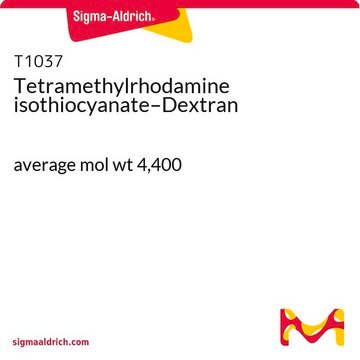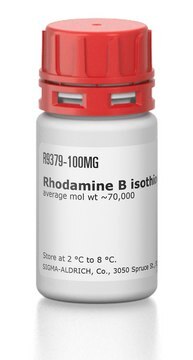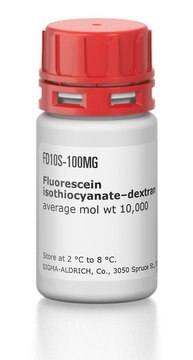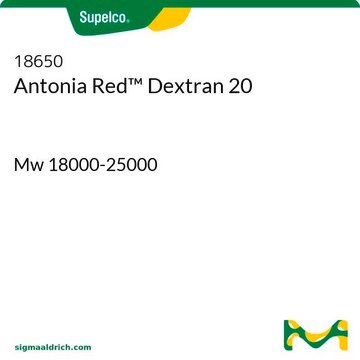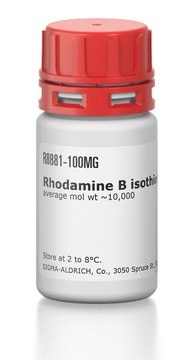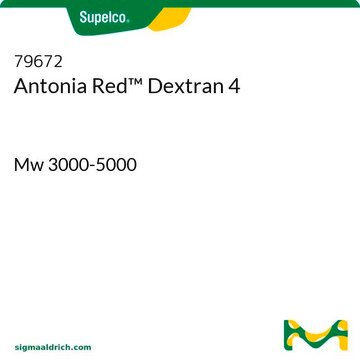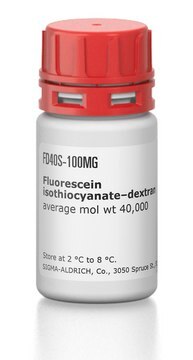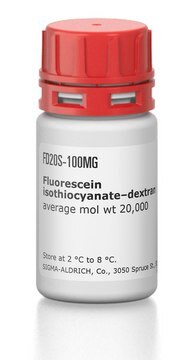42874
Tetramethylrhodaminisothiocyanat–Dextran
average mol wt 40,000
Synonym(e):
TRITC-Dextran 40, TRITC-Dextran
About This Item
Empfohlene Produkte
Biologische Quelle
synthetic
Qualitätsniveau
Form
powder
Mol-Gew.
average mol wt 40,000
Kennzeichnungsgrad
0.001-0.008 mol/mol TRITC glucose
Fluoreszenz
λex 550 nm; λem 577 nm±5 nm in 0.1 M Tris pH 8.0
Anwendung(en)
cell analysis
Suchen Sie nach ähnlichen Produkten? Aufrufen Leitfaden zum Produktvergleich
Verwandte Kategorien
Allgemeine Beschreibung
Anwendung
WGK
WGK 3
Flammpunkt (°F)
Not applicable
Flammpunkt (°C)
Not applicable
Analysenzertifikate (COA)
Suchen Sie nach Analysenzertifikate (COA), indem Sie die Lot-/Chargennummer des Produkts eingeben. Lot- und Chargennummern sind auf dem Produktetikett hinter den Wörtern ‘Lot’ oder ‘Batch’ (Lot oder Charge) zu finden.
Besitzen Sie dieses Produkt bereits?
In der Dokumentenbibliothek finden Sie die Dokumentation zu den Produkten, die Sie kürzlich erworben haben.
Kunden haben sich ebenfalls angesehen
Artikel
Additional information about FITC-labelled polysaccarides including FITC-Dextran, FITC-DEAE-dextran (FDD), FITC-carboxymethyl-dextran (FCM-Dextran). This page discusses the impact of weight-average molecular weight on the respective molecule dimensions and other physical properties
Unser Team von Wissenschaftlern verfügt über Erfahrung in allen Forschungsbereichen einschließlich Life Science, Materialwissenschaften, chemischer Synthese, Chromatographie, Analytik und vielen mehr..
Setzen Sie sich mit dem technischen Dienst in Verbindung.